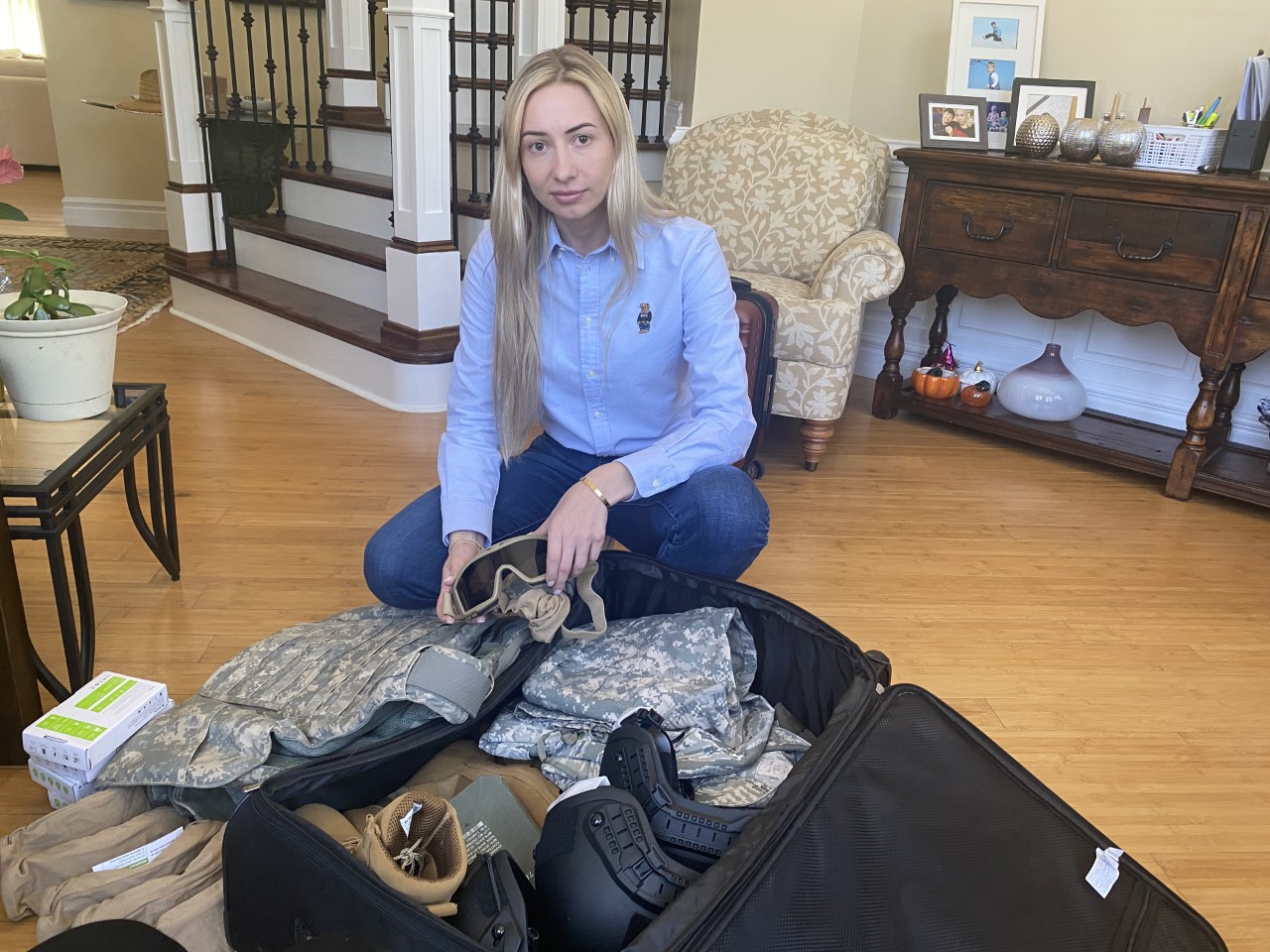(The Hill) — The Biden administration on Wednesday announced a wave of new sanctions targeting Russia’s two largest banks, daughters, the wife and daughter of Russia’s top diplomat and blacklisted members of Russia’s Security Council.
A senior administration official said the measures are being imposed in alignment with allies in the Group of Seven nations and the European Union and are in response to “the sickening brutality” recently discovered in the Kyiv suburb of Bucha following the retreat of Russian forces.
Ukrainian President Volodymyr Zelensky has accused Russia of committing genocide, while the U.S. and other international leaders have said the images of civilians discovered bound, shot at close range, piled in cellars and left for dead on the street likely amount to war crimes.
The senior administration official said the U.S. and allies are “intensifying the most severe sanctions ever levied on a major economy” and that the result is to send Russia “into economic and financial and technological isolation.” The official added the country will “go back to Soviet-style living standards from the 1980s.”
The administration allowed a carve-out for energy, given the E.U.’s dependence on Russian oil and gas, but said it is working with allied nations to reduce such imports.
The measures announced Wednesday impose full blocking sanctions on Russia’s largest state-owned bank, Sberbank, and its largest private bank, Alfa Bank, freezing any assets “touching” the U.S. financial system and prohibiting Americans from doing business with them.
“Any transaction, in any currency with a U.S. person or U.S. institution is prohibited,” the official said of the full blocking sanctions, targeting Russian efforts to receive payment in currencies other than the U.S. dollar to undercut sanctions.
“This is the most severe action we can take in terms of financial measures,” the official said.
Alfa Bank is Russia’s largest privately-owned financial institution and its fourth-largest financial institution overall. The administration had sanctioned Sberbank on Feb. 24, the day Russia launched its invasion, blocking all U.S. business with the financial institution.
Sberbank is Russia’s largest bank, controls about a third of all bank assets in Russia and is majority-owned by the government.
“In total, we’ve now fully blocked more than two-thirds of the Russian banking sector, which before the invasion held about $1.4 trillion in assets,” the senior administration official said.
The administration imposed personal sanctions against two of Putin’s adult daughters, Maria Putina and Katerina Tikhonova and the wife and daughter on Russian Foreign Minister Sergey Lavrov.
The U.S. also imposed sanctions on former President and Prime Minister of Russia Dmitry Medvedev, who is a prominent voice supporting Putin’s invasion of Ukraine, and Prime Minister Mikhail Mishustin.
“These individuals have enriched themselves at the expense of the Russian people. Some of them are responsible for providing the support necessary to underpin Putin’s war on Ukraine,” the administration said in a statement. “This action cuts them off from the U.S. financial system and freezes any assets they hold in the United States.”
Other sanctions include a ban on new investment in Russia, which will be imposed with an executive order by President Joe Biden. It adds to the exit of nearly 600 multinational companies, the administration official said, and robs the Russian economy of “private sector know-how and skills that travel with investment.”
“The knock-on effects to the ongoing brain drain from Russia will be profound,” the official said.
The official said that the administration on Monday had “cut off Russia’s ability to use its frozen central bank funds to make debt payments,” requiring Moscow to find “new sources of dollars from outside the U.S. and to find a new payment route other than U.S. banks, to avoid falling into default.”
The Russian Finance Ministry on Wednesday said it was forced to pay $649.2 million to foreign debt-holders in rubles amid the sanctions, with the Moscow Times reporting it raised the prospect of Moscow potentially defaulting on its debt.
The U.S. sanctions, however, include carve-outs to support access to telecommunications and information to provide “outside perspectives to the Russian people,” the administration said. There are also carve-outs to allow access to medicine and medical devices and humanitarian efforts, including to ensure the availability of basic foodstuffs and agricultural commodities.
United Nations Secretary-General Antonio Guterres on Tuesday warned that Russia’s invasion of Ukraine and the sanctions response by the international community is contributing to a spike in food, energy and fertilizer costs impacting 1.2 billion people in 74 developing countries.
Russia’s war against Ukraine is entering its second month and while Moscow’s retreat from Kyiv is being viewed as an important victory for Ukraine, Ukrainian officials and other global leaders are warning that the Kremlin is massing forces to focus on the east of the country, in particular the Donbas, and cities in the South.
The Ukrainian southern port city of Mariupol, under a Russian siege for more than a month, is viewed as suffering some of the most heinous atrocities of the war. The U.N. coordinator for humanitarian efforts, Martin Griffith, described it as the “center of hell” during a Security Council meeting on Tuesday.
The Biden administration said its sanctions are meant as a broader strategy that includes support for Ukraine’s military to push back against Moscow’s offense.
Secretary of State Antony Blinken announced on Tuesday that the U.S. would provide an additional $100 million in security assistance to Ukraine, in particular Javelin anti-armor systems, and brings the total amount provided by the U.S. since the start of the invasion to more than $1.7 billion.
“The world has been shocked and appalled by the atrocities committed by Russia’s forces in Bucha and across Ukraine. Ukraine’s forces bravely continue to defend their country and their freedom, and the United States, along with our Allies and partners, stand steadfast in support of Ukraine’s sovereignty and territorial integrity,” Blinken said in a statement.
In total, the Biden administration has provided $2.4 billion in security assistance to Ukraine since January 2021.












































































































